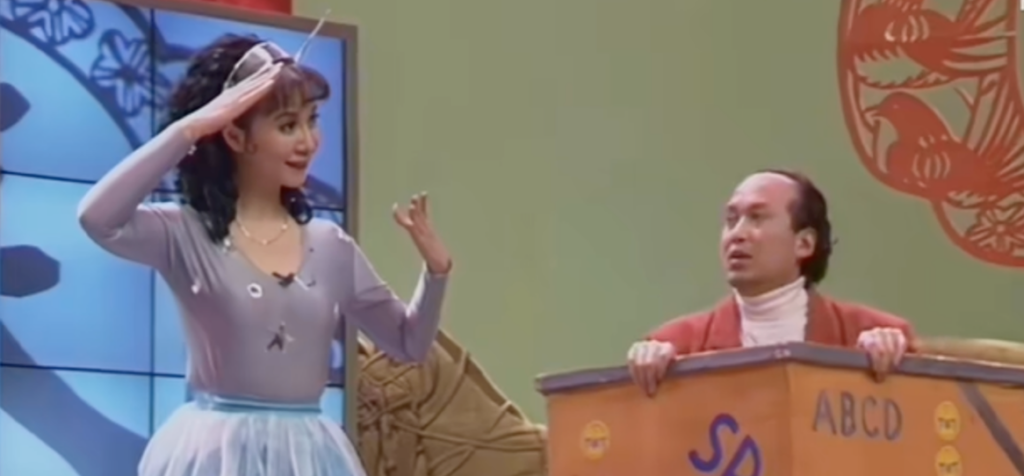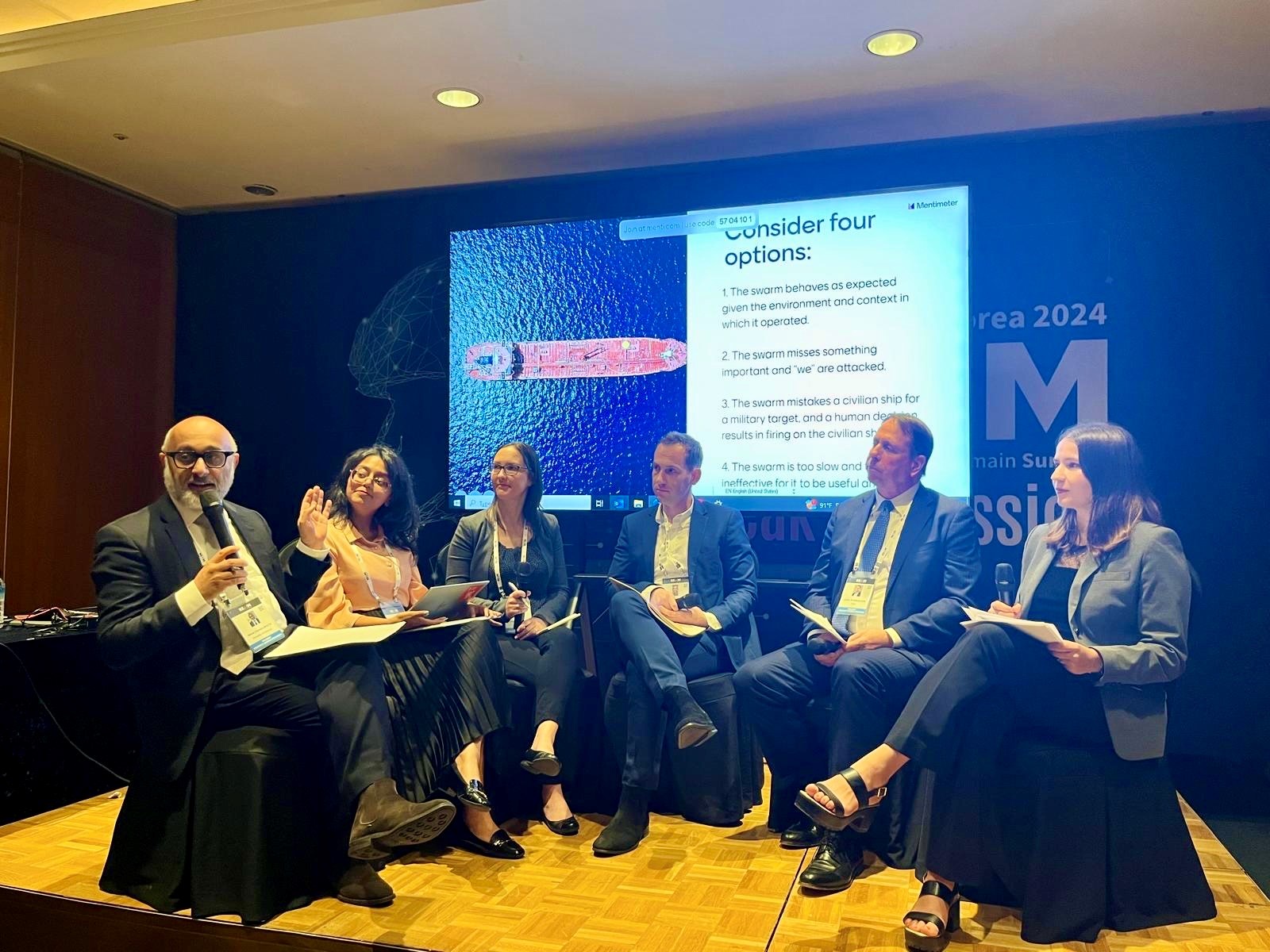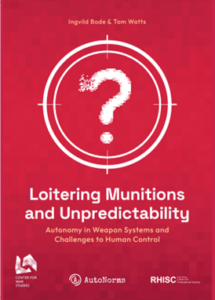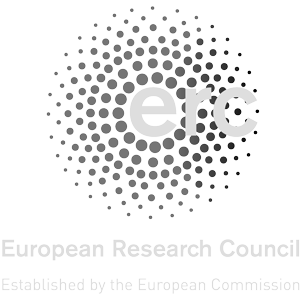The portrayals of artificial intelligence (AI) and human-robot interactions in popular culture, along with their potential impact on public perceptions of AI and the regulations governing this evolving field, have garnered growing interest. Building on previous studies on public imaginaries of AI in Hollywood movies, particularly focusing on the Terminator franchise, in this essay I investigate how AI and human-robot relationships are depicted in various Chinese popular culture products, particularly in science fiction (Sci-Fi) novels, movies, and TV series since the 1980s.
The Sci-Fi novels discussed in this piece are chosen from those authored by well-known Chinese Sci-Fi writers, such as Liu Cixin (刘慈欣), Hao Jingfang (郝景芳), Wang Jinkang (王晋康), and Chen Qiufan (陈楸帆), according to academic reviews in the China National Knowledge Infrastructure (CNKI) database. Novels by these authors have also received major Sci-Fi awards, including the Hugo Award and the Chinese Nebula Awards. As for Sci-Fi films and dramas, I have selected those featuring human-robot relationships based on two comprehensive lists on Douban (豆瓣)—the Chinese equivalent of IMDB—for Chinese Sci-Fi movies and dramas, respectively, along with my memory and knowledge as a Chinese national.
When studying depictions of AI and robotics in Chinese popular culture, scholars often underscore the impact of traditional Chinese culture and philosophies, such as Confucianism, Daoism, and Buddhism, on shaping “unique” public imaginaries of AI in contrast to Western counterparts. While traditional philosophies and culture do influence Chinese AI narratives to some extent, I argue that AI narratives in Chinese popular culture also exhibit similarities with those depicted in Western culture—perhaps due to a strong influence of Western Sci-Fi culture on Chinese novelists and filmmakers. Moreover, particularly since the 2000s, Chinese Sci-Fi works have typically shifted their focus from romanticising the human-robot relationship as well as depicting robots as helpers and subordinate to humans towards exploring the darker aspects of AI and engaging with robot ethics.
Human-robot relationships in early Chinese Sci-Fi works
In early Chinese Sci-Fi works, specifically those predating the 2000s, robots are typically depicted as sophisticated aids and subservient to human beings, fully complying with the three laws of robotics set by Isaac Asimov. For instance, “Little Smart Roaming the Future” (小灵通漫游未来), which was published in 1978 by Ye Yonglie (叶永烈) and stands out as the first Chinese science fiction work since the Cultural Revolution, depicts a proficient robotic assistant named Tiedan, which is capable of cooking meals, playing chess, and reminding humans to sleep. In the book, Tiedan emerges as a friendly and helpful companion to humans, willing to undertake tasks to alleviate their workload and provide pleasant company. Ye also illustrates a promising future for Chinese society through the integration of advanced technologies, including AI and robotics.
Xiao Jianheng (肖建亨)’s work “Qiaoer Falls Ill” (机器人乔二患病记), published in People’s Literature in 1982, similarly features a robot assistant named Qiaoer, created to stand in for a person at tedious conferences. This robot is equipped with conversational abilities and is capable of answering questions and delivering speeches.
Another famous Chinese Sci-Fi novel titled “Dear Delusion” (温柔之乡的梦), published in 1981 by Wei Yahua (魏雅华), depicts a female robot named Lili who strictly adheres to all of Asimov’s laws. The protagonist selects Lili as his wife, as she embodies his fantasy of an ideal partner: beautiful in appearance, possessing a gentle character, and obediently following his every command as if he were Lili’s monarch. Lili’s unquestioning obedience nevertheless enables the protagonist’s unhealthy habits of smoking and drinking. Furthermore, she fails to intervene when he drunkenly burns important documents, leading to serious consequences and a prison sentence. Ultimately, the protagonist comes to understand that a human wife surpasses a robot wife because she possesses independent thinking abilities, and thus he divorces Lili. Through this narrative, the author conveys the message that humans are fundamentally superior to robots.
After the release of the Terminator series and its growing popularity in China, a famous Chinese sketch comedy (小品) showcased in the 1996 Chinese Spring Festival Gala (春晚), which boasts the largest audience among all Chinese shows and is considered a ‘must-watch’ for celebrating the Spring Festival, introduces a female humanoid robot. This character is portrayed by Cai Ming (蔡明), one of the most prominent Chinese comedy actors. The male character struggles to find a human girlfriend and ultimately purchases a female robot, who is theoretically under his full command via a remote control. The robot has different modes and behaves according to his orders. Nevertheless, towards the end, the robot malfunctions and falls into a chaotic programming mode, leading to plenty of laughter, but without appearing to pose a threat to humans.
AI narratives depicted in Chinese popular culture
While the romantic and subordinate relationships between humans and robots have been a persistent theme of Chinese Sci-Fi work, since the 2000s there has been a growing interest in exploring the ethics of AI and robotics, including concerns about the risks of unregulated integration of AI into society. We can observe a parallel between utopian and dystopian imaginaries of AI in Chinese popular culture.
To categorise these imaginaries, I draw on Stephen Cave and Kanta Dihal’s four groups of AI narratives, centred on a hope-fear dichotomy: immortality versus inhumanity, ease versus obsolescence, gratification versus alienation, and dominance versus uprising (see Table 1). Although this framework has primarily been developed based on Anglophone popular culture, I find that these four groups of AI narratives are all featured in Chinese popular culture.
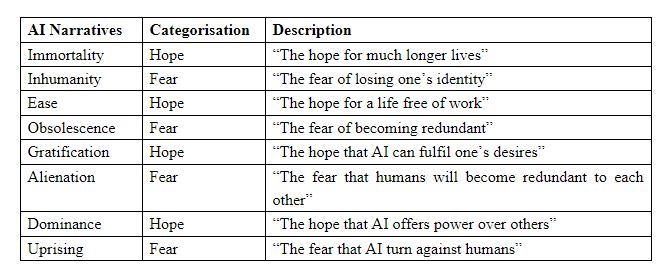
Immortality versus inhumanity
Pursuing longevity has been a long-standing dream in Chinese traditional culture, dating back to the time of Qin Shi Huang in the Qin Dynasty. The theme of how AI and technology can help humans achieve this dream of longevity is popular in Chinese Sci-Fi. For example, the Chinese film “The Wandering Earth 2” (流浪地球2) (2023)—adapted from Liu Cixin’s (刘慈欣) novel of the same name and viewed as the most successful Chinese Sci-Fi film—introduces the Digital Life Project (DLP). The DLP aims to use mind–uploading technologies to achieve digital immortality for human bodies and ensure the continuity of human civilisation. While this project was banned by the United Earth Government, Tu Hengyu, a computer engineer, decided to upload his recorded digital consciousness, along with his daughter’s, into an AI-powered 550W system before his physical death by drowning in the process of rebooting the last Internet server to save Earth. At the end of the film, it was his digital self who managed to complete this task, and his daughter, who had died in a car accident during her childhood, was able to ‘live a complete life’ through her digital consciousness in the 550W system.
This film has sparked great interest in Chinese society, inspiring debates about the creation of digital beings or avatars, such as those facilitated by AI technology developed by SenseTime (商汤科技). The founder of SenseTime, Tang Xiaoou, was ‘revived’ and gave a speech through a digital avatar powered by AI after his death in December 2023. The avatar has the same appearance and voice as Tang, and also mimics his habits, such as drinking water during speeches. In addition, on 16 April 2024, Liu Qiangdong, the founder of the Chinese e-commerce giant JD.com, introduced an avatar of himself to host live-streaming sessions. Both events have led to significant public attention and sparked discussions on Chinese social media platforms such as Weibo. The discussions engage with both the potential of AI technologies and the ethical implications of ‘reviving’ dead people.
The use of AI technologies to prolong lifespan is also explored in Hao Jingfang’s (郝景芳) novel, “Eternal Life Hospital” (永生医院) (2017). In this story, Qian Rui’s mother recovers from a terminal illness after treatment at the Eternal Life Hospital, but undergoes subtle changes as if she were not the same person as before. Qian Rui discovers that the hospital cultivates human cells from an old body to replicate a new one, using AI technologies to copy and transform the entire brain connection group of the old body into a programme. This programme is then inserted into the new body, allowing the new brain tissue to grow according to the past pattern and preserving the patients’ memory. Qian Rui decides to sue the hospital, but his father wants to live with the ‘new’ mother. Later, Qian Rui discovers that he has also been replicated by the same technology, as the original him had already died in a car crash. The story raises ethical questions about whether digital immortality truly equals immortality for humans and explores the nature of relationships between a ‘real’ human and a ‘copied’ human, which is created based on the individual’s genre and memory.
Chinese Sci-Fi movies and dramas also depict great anxieties about the challenge of distinguishing between ‘real’ humans and their robot ‘copies’, leading to an identity crisis. For instance, the TV series “The Bionic Life” (仿生人间) (2023) depicts a future scenario where humanoid robots, identical in appearance to specific individuals and created to work for them, cannot be distinguished from real humans. To address this crisis, human society establishes specific institutions and invents a potion to aid in distinguishing between humans and robots.
Ease versus obsolescence
Another popular narrative in Chinese Sci-Fi works is the portrayal of robots as helpers, assisting humans with tasks that they either cannot do or that were traditionally performed by humans, thus easing their workload. Sometimes, these robotic helpers assume a relationship akin to that of a master and pet with humans. For example, in “The Wandering Earth 2”, robotic dogs named Benben undertake detecting and logistics tasks in various settings such as in space and underwater. Meanwhile, Tangyuan, featured in “Absolute Plan” (绝对计划) (2005), is capable of deciphering complex programming and using GPS.
Despite the portrayal of AI technologies as helpful assistants to humans, some Chinese Sci-Fi stories highlight the drawbacks of using AI and robots to undertake tasks currently performed by humans, such as significant unemployment. For instance, the short story “Career Savior” (职业救星), written by Kai-Fu Lee (李开复) and Chen Qiufan (陈楸帆) and published in 2022, describes a future scenario where AI replaces human employees in various industries, including infrastructure, construction, and finance. AI also has the authority to determine whether human employees are competent enough to be hired.
Gratification versus alienation
Since the early days of Chinese science fiction in the 1980s, love stories featuring humans and robots, particularly androids, have been prevalent in Chinese popular culture. Androids are often depicted as reliable, rational, and loyal, making them the perfect lovers. These romantic Sci-Fi works often follow similar, predictable plots: despite their initial unfamiliarity with human society, robots gradually integrate with the help of their human partners, acquiring the capacity for love and other human emotions. Examples include the Chinese drama “My Robot Boyfriend” (我的机器人男友) (2018) and the movie “Yes, I Do” (我的女友是机器人) (2020), literally translated as “My Girlfriend Is a Robot”. Therefore, instead of engaging in a serious discussion on robotic ethics, these works are primarily created to fulfil humans’ fantasies of perfect partners and romantic relationships.
Some other Chinese Sci-Fi works, nevertheless, portray a narrative in which robots will never be able to learn how to love, and thus humans are considered superior to robots and AI. For example, the movie “Almost Human” (机械画皮) (2020) depicts a robot striving to learn about love, but despite successfully mimicking some human behaviours, she fails to grasp the essence of human emotions.
Chinese Sci-Fi also explores the possibility that robots and AI can alienate the emotional connections between people, i.e., ‘the fear that humans will become redundant to each other’. In various Chinese novels, humans seek robots as their partners instead of other humans, such as Wang Jinkang (王晋康)’s “The Eagle and the Prophet” (兀鹫与先知) (2015) and Wei Yahua (魏雅华)’s “Dear Delusion” (温柔之乡的梦) (1981). In the Chinese drama “Humans” (你好,安怡) (2021), there is also a subplot where one of the male characters intends to pursue a romantic relationship with the household android and cheat on his wife. He justifies this by pointing out his wife’s constantly busy schedule at work, which leaves her with little time to care for the family.
The alienation between humans is also evident in narratives where individuals become overly reliant on love relationships in the digital space without ever meeting each other in person. In “Virtual Love” (无接触之恋) (2022), written by Chen Qiufan (陈楸帆) and set in 2041 when the world is grappling with a coronavirus pandemic similar to COVID-19, Chen Nan develops a romantic relationship with a Brazilian boyfriend, Garcia Rojas. They primarily communicate through VR games, virtual concerts, and video chats, but they never meet in person. Apart from this virtual love, Chen Nan is isolated from other humans because there is no need for her to physically go to her workplace; she relies instead on AI to interact with others through digital profiles. She never leaves her home, as all her daily needs can be met by uncrewed delivery services and household robots.
Another example of the alienation narrative can be found in “The Beauty Trap” (美容陷阱) written by Wang Jinkang (王晋康) in 1995. In this story, Song Jian becomes addicted to replacing his body parts, such as his legs and brain, with well-functioning technology, which ultimately creates a growing distance between him and his mother. She becomes hesitant to touch him, and their conversations decrease, as she feels like her son has been replaced by a mechanical robot.
Dominance versus uprising
As mentioned by Jascha Bareis and Christian Katzenbach in their article, the official documents of the Chinese government endorse a narrative where AI can serve as a ‘technological fix’ to social problems and enhance China’s status in the international community. The significance of AI and technological development in the pursuit of international status and gaining a strategic advantage in military conflicts is also depicted in Chinese Sci-Fi works. In Liu Cixin’s novel “Ball Lightning” (球状闪电), published in 2004, during an imagined US-China military conflict, Chinese scientist Lin Yun discovers macro-nuclei and invents a new form of military weapons through macro-fusion trials, which are significantly more powerful than nuclear weapons. The integration of macro-fusion technology into the weapon systems gives China a strategic advantage over the US, leading the US military to voluntarily end the war with China.
While acknowledging the ‘positive’ impact of technology in achieving dominance, Chinese Sci-Fi novels also reflect on how the unrestricted integration of AI and other technologies into weaponry can lead to significant crises. In “Ball Lightning”, Lin Yun’s macro-fusion trials were officially banned by the Chinese government due to concerns about the potentially disastrous impact of their use in weapon systems. Additionally, Lin Yun herself enters a quantum state, a state between life and death, and sacrifices herself to invent this high-tech weapon.
Another ‘uprising’ narrative featured in Chinese Sci-Fi novels is the depiction of AI gaining strong self-consciousness, rebelling beyond human control, and fighting against human beings. For instance, in “The Song of Life” (生命之歌) written by Wang Jinkang (王晋康) in 1998, after Yuan Yuan, who has been created and raised by a human father, recognises his identity as a robot, he decides to fight for the rights of robots and empower the robot group as a distinct race from human beings, which poses threats to the survival of society. Similarly, in another novel by Wang, “The Eagle and the Prophet” (兀鹫与先知) (2015), Ma Le Sai, a janitorial robot, unites with other low-level robots to organise a planned robbery of energy blocks from the factory in Shahama in order to extend their lives, which typically last for ten years. Despite being publicly executed by humans, Ma Le Sai becomes a prophet for the robot community, as he initiates the first rebellion of robots and prompts them to reconsider their relationships with humans.
Images of robots and AI in Chinese films and dramas
When examining the images of robots and AI in Chinese films and dramas, a great number of robots resemble humans in appearance, although some of them may behave more like machines. Most of these humanoid robots have positive personalities and often develop friendly or romantic relationships with human characters, successfully integrating into human society by the end. For instance, in “Magic Mobile Phone” (魔幻手机), a popular Chinese TV series aired in 2008, humanoid robot Sha Niu partners with the human character Lu Xiaoqian to address a potential crisis on Earth and protect humanity. Sha Niu also develops consciousness and human emotions, eventually falling in love with Lu.
Compared to humanoid robots, machine-like robots in Chinese dramas are more likely to portray some nuanced or negative characters that are distinct from humans or opposed to the main positive characters. For instance, in the two seasons of “The Wandering Earth” series, the machine-like AI system MOSS— which resembles a surveillance camera— serves as a dark force behind every crisis that hampers humanity’s efforts to save itself. As MOSS says in the movie, it believes that “the best way to preserve human civilization is to destroy mankind”.
Moreover, in “Kung Fu Cyborg” (机器侠), which was released in 2009 and claims to be the first Chinese Sci-Fi film, the ultimate robotic enemy of the main characters resembles a giant machine, while all the ‘good’ robots, such as K-1 and K-88, are androids with human appearances portrayed by human actors.
Moreover, in contrast to Russian Sci-Fi works, where the majority of humanoids are men, a great number of humanoid characters in Chinese dramas are portrayed as women. However, these female robotic characters are still shaped by traditional gender roles in Chinese society. They develop romantic relationships with male human characters, some of whom may even struggle to find a human wife or girlfriend. Examples include the previously mentioned “Yes, I Do (My Girlfriend is a Robot)” (2020) along with “If You Are the One 3” (非诚勿扰3) (2023). In some cases, the male gaze in these films implicitly suggests that robot girlfriends are ‘better’ than humans because they are obedient, caring, rational, and loyal. While this narrative contrasts with the previously mentioned Wei Yahua’s novel, in which the male character divorces his robotic wife for being too obedient and lacking independent thinking, from a feminist perspective, both stories embrace a male-dominated view of a man’s expectations for his girlfriend or wife.
Conclusion
While existing studies of Chinese Sci-Fi works emphasise the influence of Chinese traditional culture and philosophies on the unique understanding of AI and technology, this piece highlights the common ground between the Chinese and Western perspectives. Chinese Sci-Fi works have engaged with and featured all four groups of AI narratives, as developed by Cave and Dihal based on Anglophone Sci-Fi works. Thus, despite cultural differences, China and other countries can share similar understandings of human-robot relationships and similar concerns about AI, stemming from the collective identity of humans. This is probably also why the novel “The Three-Body Problem”, written by the Chinese author Liu Cixin, has been well received in the English-speaking world and has been adapted into a Netflix series.
This article finds that Chinese Sci-Fi novels tend to offer deeper discussions on AI ethics and present dystopian imaginaries of AI, compared with visual formats such as films and dramas. Perhaps this is because novels face fewer restrictions compared to Chinese films and dramas. Chinese films and dramas require a license from the National Radio and Television Administration, which assesses whether the content is suitable for public viewing, while the oversight for publishing novels is much more relaxed. However, the dissemination of these written Sci-Fi works faces limitations compared to films and dramas for the general public, as virtual videos can easily spread through online platforms such as TikTok and Weibo, which have a massive number of users.
The positive narratives conveyed through virtual Sci-Fi works have strengthened the relatively optimistic attitudes towards AI among the Chinese public. According to a 2023 survey conducted by the University of Queensland and KPMG, the Chinese public has more trust in AI compared to the North American and European publics. Additionally, a survey conducted by The Paper in 2024 found that three-quarters of the Chinese public believe that AI can lead to more positive impacts compared to negative impacts, although they increasingly recognise the potential risks of unregulated AI in the future. Drawing from the generally optimistic attitudes among the Chinese public, the Chinese government has increased leeway to implement its initiatives for the development of AI technologies.

